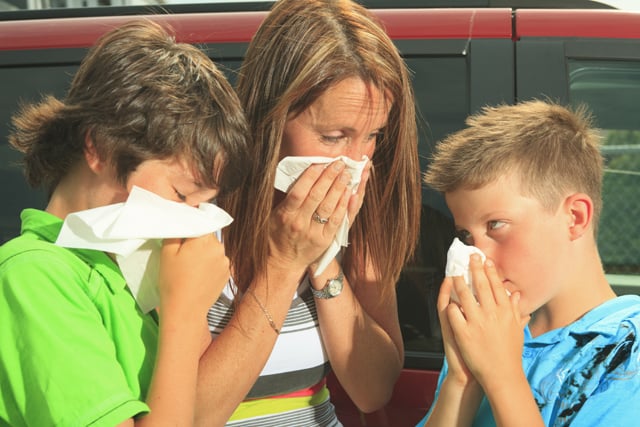Why are allergies on the rise?
Twenty-one million adults suffer from at least one allergy and this figure is rising by 5% every year. The UK is now one of the top three countries in the world in terms of highest rate of allergies. So, just what is causing these allergies?

Genetics
This is something experts have been investigating and debating for years, but the answer is slowly emerging at last. We now know that genetics play a large part – if your parents have an allergy, such as hay fever, you’re more likely to suffer from it too. For example, a child in the UK has a one in five chance of having an allergy – this chance doubles if their parent has one and this chance increases to 60 to 80% if both parents have one.
Contact with animals
A study from the University of Michigan discovered that pet owners are less likely to suffer from allergies than non-pet-owners because daily exposure to animals strengthens your immune system. The scientists found that children who grow up with dogs are at a particularly low risk of developing allergies.

Hygiene Hypothesis
Being too house-proud can also increase your risk of allergies. The immune system needs to come into contact with micro-organisms and bacteria whilst it is developing at infant stage then responds appropriately later in life.
Now most of us live in a cleaner environment than ever, it could be argued the inadequate exposure to allergens is resulting in tendency to allergy.
Diet
Some experts also point to a change in diet and have questioned whether lower levels of vitamin D and omega-3 fatty acids might cause an increase in allergies. A study from scientists at Aberdeen Royal Infirmary found that there could potentially be links between a diet rich in vitamin E during pregnancy and the likelihood of the baby suffering from allergies when they're older. Good sources of vitamin E include dark green vegetables such as broccoli and spinach, and almonds.
Pollution

Air pollution could have an effect on allergy suffering. There's evidence that the pollutants also stimulate pollen production and increase the release of antigens in pollen grains that lead to allergic responses. It's also thought that common air pollutants, such as ozone, sulfur dioxide, and nitrogen dioxide have the potential to exacerbate allergy symptoms.
Diesel fumes have been linked to a rise in respiratory allergies, and particles in diesel can both worsen and trigger allergic reactions. The good news is that air quality has improved considerably in the UK in recent decades due to new cleaner technology and tighter environmental legislation. But it’s a slow process and experts think we all need to be part of the solution. Drive less if you can, and stay informed about air quality in your own area.
Do you think you may have an allergy? Find out more about allergy symptoms by clicking here.
